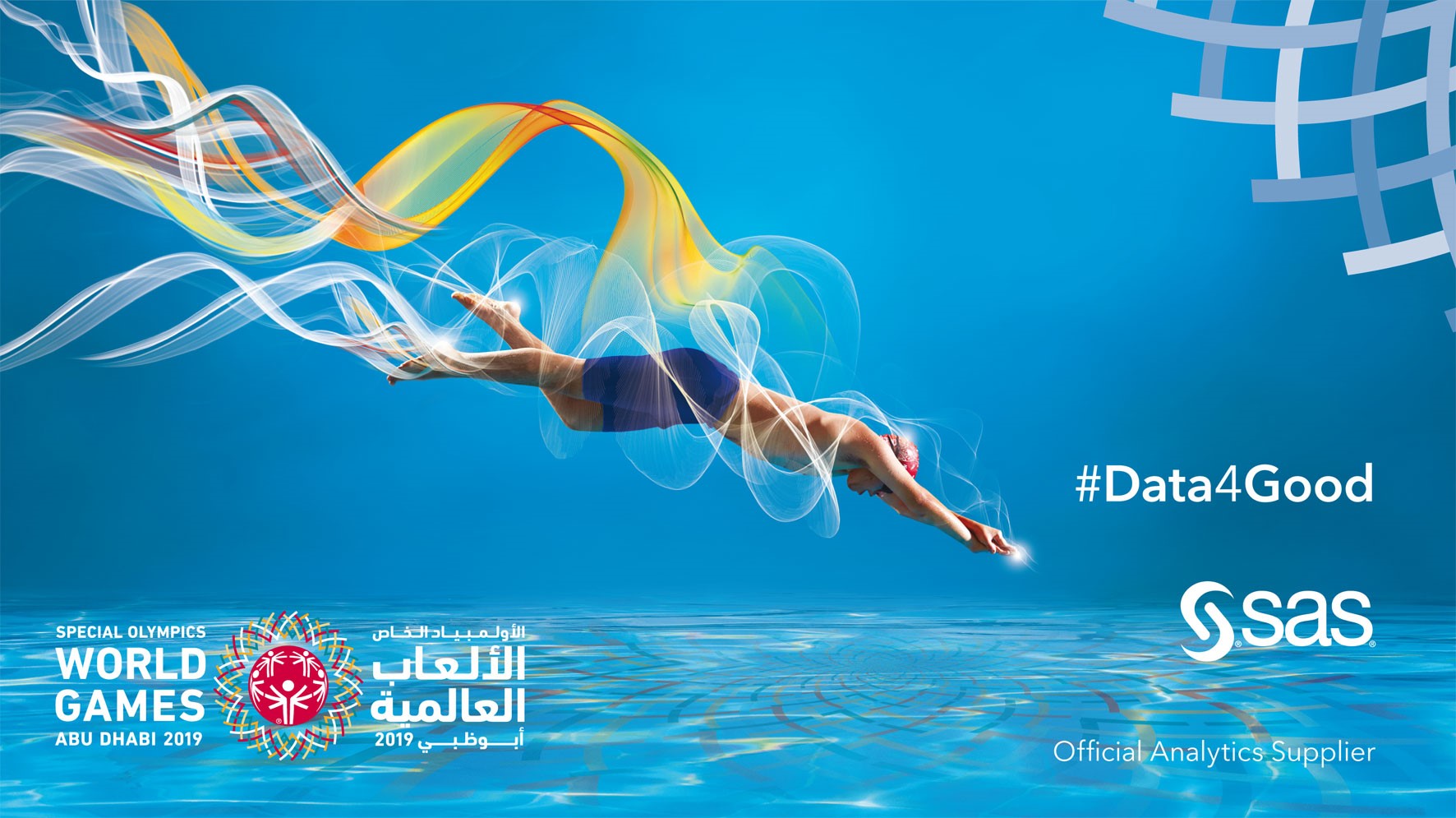The Special Olympics is part of the inclusion movement for people with intellectual disabilities. The organisation provides year-round sports training and competitions for adults and children with intellectual disabilities. In March 2019 the Special Olympics World Games will be held in Abu Dhabi, United Arab Emirates. SAS is an official analytics supplier.
There are a number of things that are really special about this event. First, it’s the 50th event. This means that it’s both celebrating the past and how far the Special Olympics movement has come, and also looking to the future and where the event might go in the next 50 years. Second, it’s the first ever Special Olympics to be held in the Middle East or Africa. Third, it can also be considered the most inclusive Special Olympics ever, involving people with intellectual disabilities in every aspect of the event.
SAS is the official analytics supplier for the event, and I am proud to say that I’m heavily involved in the work along with many talented SAS data science volunteers across five continents. Multi-sport events are quite different from your average football game, and the analytics opportunities are amazing. Being involved in this data-for-good project has been a real eye-opener. So, what would I highlight?
Broadening range and reach of analytics
The sheer range of analytics applications has been breath-taking. Volunteers from SAS have had to turn their hands to a huge range of projects to analyze event and athlete data. As the event has gotten closer, the operational insights required by the Special Olympics committee have increased. This has meant integrating new data sources almost every day.
Volunteers around the world have been designing new dashboards and analyses on a continuous loop. Applications include venue management, athlete profiling, health and safety, social media analysis, and efficient ways to manage volunteers, guests, and accommodations. Let me highlight five of these applications in more detail.
1) Health & safety first
Athlete health and safety is probably the biggest concern for the whole event—and quite rightly so. There will be thousands of athletes converging in Abu Dhabi. All these athletes have particular conditions and requirements, and it’s important that the organisers can track key medical information and use real-time data to ensure their safety.
Innovative approaches such as wearables, which track athletes’ vital signs and location, will be used during the event. Data from these will be analysed and visualized in real time to assist the operations teams. Data analytics is also used to identify medical risks proactively, such as risk of seizures and diabetes tracking. This means the organisers can ensure that the necessary health personnel, equipment and vehicles are in the right place at the right time.
2) Improving spectator experience
Smooth venue management and positive spectator experience are also critical success metrics for the event. The thousands of athletes will be accompanied by families and delegations, and there are also likely to be plenty of other spectators and fans attending. Analytics is being put to use to combine and analyze key information from various operational systems such as ticketing, travel, accommodation and guests management to
provide operations center personnel with most up-to-date view of the overall event experience.
3) Supporting inclusion, the ultimate objective
The ultimate objective of Special Olympics is to support integration of people with special needs into society.
One way to do this is to create public awareness and education around the topic. This event is therefore far more than just a sports event. It’s also a platform for the organisation’s mission. To make sure that the event profile remains positive means that public attendance must be managed without hassle for both spectators and athletes. This requires effective management of seating capacities and logistics requirements, which uses the SAS platform integrated with the event’s ticketing system. Booking information by venue and event is used to track seating capacity and event attendance rates to help the organising teams.
4) Keeping the social pulse
Text analytics can help measure awareness and track trends in social media. These tools give organisers a way to provide information about public awareness of the Special Olympics. The ability to automatically analyse tweets from the public using SAS Text Analytics will allow the organising team to devise better strategies for public messaging and will also support policy-making after the event. The insights generated could potentially identify lack of awareness or misperceptions on specific topics or show that the public is responding positively to specific messages or activities during the event.
5) Building relationships
Most athletes are there to make new friends and meet new people. We used text analytics to examine the athletes’ registration data, and found something very interesting. The main motivation for most athletes to attend was not the desire to win their event. Instead, it was to meet new people, and make new friends.
The Special Olympics is not the Olympic Games. It is, in many ways, far more important: it is about relationships and communities coming together to celebrate inclusion.
Inspiring data for good
Beyond the software and skills that SAS is providing, I’m seeing our company values demonstrated in the way the global team of volunteers is working on building and deploying these analytics applications.
We like to think our emotional connection to the world reflects a blended passion for analytics and advocacy. And the way this project has been executed is a terrific example of these values. I am in good company, and I hope you can join us on many more data-for-good journeys.
Read more inspiring stories from SAS Special Olympics volunteers:


2 Comments
good
Thank you! Society needs to hear more about this amazing community!